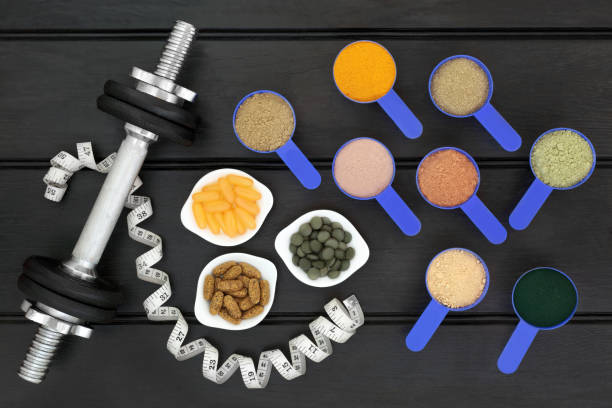Meat is perhaps the most convenient source of protein for most of us who don’t have any sort of special diet to follow. Protein is a crucial part of our diet, as we need it for our muscles. It also helps to make us feel full, so we don’t overeat.
Vegetarians can’t eat meat, though, but at least they have eggs and other dairy products that are also good sources of protein. And that means vegans have a real problem, since they can’t eat eggs and other dairy products.
It’s theoretically possible to get enough protein from purely plant-based sources, but there’s a catch. Plant-based sources don’t have as much protein as their meat counterparts, so that means vegans have to eat a lot of these plant-based foods to get sufficient protein. And that’s not always a good thing, because that means you’re loading yourself up with too many calories.
This is why plenty of vegans use plant-based protein powders to supplement their diet. At least vegetarians have the options to use whey protein powder, which is a great source of extra protein. Unfortunately, vegans cant’s use whey, because it’s a dairy product.
The good news is that the following protein powders work very well
Pea Protein
This is a great choice for vegan protein powder, especially if it’s based on the yellow split pea. A ¼-cup (that’s about 28g) of this protein powder will provide 21g of protein, while limiting the calorie intake to just 100 calories. There’s even some evidence that it might be as good as whey protein powder when it comes to helping you build bigger muscles.
Try the Naked Nutrition brand for this option, as they offer a 100% pea protein powder.
Rice Protein
It’s a good idea to switch rice protein with pea protein regularly, because pea protein won’t get you the complete amino acid profile you need. Or you can combine the pea protein with rice protein on a regular basis.
In itself, the rice protein isn’t bad at all. It gets you 22g of protein per ¼-cup pf rice protein powder, while only loading you with 107 calories. Try the Growing Naturals brand for your rice protein powder.
Hemp Protein
Yes, it’s made from hemp, and that means it comes from the seeds of the cannabis plant. But before you dismiss this “druggie” option, take note that the produces of hemp protein powder breed their cannabis sources in such a way so that the seeds don’t have any THC (the stuff that makes you high).
The hemp protein doesn’t really have a lot of protein, compared to pea or rice protein powder. You’ll need an entire cup of the hemp protein powder to give you merely 12g of protein with 108 calories.
But this is on this list because it’s also a good source of omega-3s, zinc, and iron. Coincidentally, vegans tend to be deficient in these minerals and nutrients too.
Try the Nutrivia bran for some good hemp protein powder.
Final Words
As you might have guessed at this point, your best bet is probably to use all 3 vegan protein powders in a mixture. That way, you get plenty of protein, you get the complete amino acid profile you need for your health, plus you’re also getting some of the crucial nutrients you might be missing from your vegan diet.
You can always just manually mix the 3 types of protein powders listed here. But you can also try the Vega brand, as it sells a vegan protein powder mix that combines pea, rice, and hemp protein.
Try any or all of these protein powders by mixing them with some almond milk. Add some oats and berries and you can end up with an excellent vegan smoothie that goes down nicely after your workout at the nearby Retro Fitness gym!
